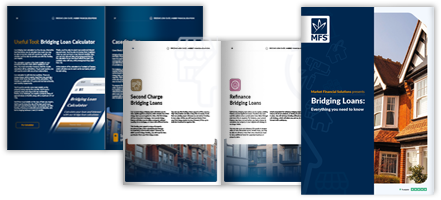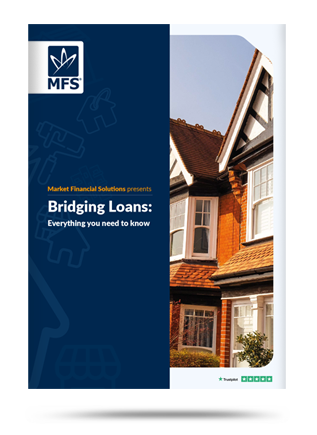
Written by Scott Lord
Deputy Chief Mortgage & Operations Officer – Front End
Market Financial Solutions are a bridging loan and buy-to-let mortgage provider and are not legal, financial, investment or tax advisers. This document is for informational purposes only and does not, and should not be considered, to constitute legal, financial, investment or tax advice or be relied upon by any person to make a legal, financial, investment or tax decision. Therefore, Investors are encouraged to seek appropriate professional advice. The information in this content is correct at time of writing.

Here at Market Financial Solutions, we are often asked: what are hard money loans?
In short, they are a type of secured loan to purchase hard assets. Normally, they are used to buy property or to make real estate investments and are usually supplied by alternative or specialist lenders.
To secure the loan, your creditworthiness is not a factor. Instead, alternative lenders use the property investment as collateral.
As such, hard money loans can offer you a speedy and relatively achievable financial option for a property investment. You can also opt for them if you have a poor credit score. But the interest rates of hard money loans and their shorter periods of repayment can make them a more high-risk finance option.
Whether you are taking out a loan to upgrade and then sell a home as a landlord, or looking to complete the build of a new property as a developer, it is vital that you are aware of what hard money loans are – which this blog will explain.
What types of hard money loans are there?
Once you know what hard money loans are, you’d want to know about the different types of hard money loans there are.
1. Transactional Hard Money Loans
These loans tend to finance the purchase of a property, and usually come with a short repayment period. They work best for investors who want to buy, renovate and sell a property at speed.
The collateral for this loan is determined by the post-repair value of a property. It requires the lender to take on higher levels of risk than a standard loan, typically resulting in elevated interest rates. However, with less of an emphasis on your credit score and equity, these loans are relatively easy to qualify for.
2. Rental Hard Money Loans
It can be difficult to calculate the cost of a property renovation project, especially for less experienced developers, landlords or investors. So if you need emergency funds as a result of an unforeseen complication, these types of hard money loans are ideal. They provide you with fast access and flexibility to capital.
3. Commercial Hard Money Loans
For commercial or semi-commercial property investments, these types of hard money loans are particularly useful. As well as offering shorter terms than traditional bank loans, they tend to have higher limits than their residential counter parts. This would allow you to finance larger projects.
However, this means that there is more risk to the lender, increasing interest rates.
4. Bridge Hard Money Loans
Finally, bridge hard money loans are a popular financial option if you simply need cash quickly. For the most part, they are used to avoid getting caught up in a property chain, as they allow you to take out a loan before an existing property is sold.
They are based on the value of the property, so are of less risk to a lender than a transactional hard money loan. Often, however, they entail higher interest rates and fees.
Their flexibility and fast approval periods make them an incredibly useful product, and one which you can find out more about at the Market Financial Solutions website.
What are the pros & cons?
Indeed, once our clients have asked ‘what are hard money loans’, they are also often keen to discuss their advantages and challenges.
Hard Money Loan Pros
- Higher flexibility
- Faster approval process
- Approval determined by property value, not credit history
- Bespoke underwriting processes
Hard Money Loan Cons
- Higher interest rates than regular loans
- Larger down payments
- Shorter terms
- Elevated risk

What is the difference between hard money and other loans?
Hard money loans have a quicker and often less demanding approval process than standard mortgages or other secured loans. It makes them potentially the best choice if you need to make a transaction reasonably soon.
From application to purchase, buying a property with a mortgage typically takes a few months. However, with a hard money loan, it is feasible to close in as little as three days.
Furthermore, hard money loans are usually delivered by non-traditional lenders.
What are the lending criteria? Is anyone excluded?
The purchase or renovation of a building is typically the most crucial element in determining eligibility for a hard money loan. This can be confusing. Whereas traditional lenders look deep into your finances and credit score to determine your eligibility, hard money loan providers focus solely on the asset in question – the property.
As such, if they can secure enough equity on the property to make the deal worth their while, the lender will issue their loan. This means that you could be rejected if you cannot. To determine this equity, lenders look at the value or future value of the property in question. They rarely offer loans that are more than 70% of the future value of the property (known as the loan-to-value or LTV).
What happens if you default?
Put simply, not making payments on a hard money loan will always result in a foreclosure process. So the lender could either seize the property or put up for auction.
What do hard money lenders mean by ‘no pre-payment penalty’?
Alongside ‘what are hard money loans’, many people ask us what lenders mean by a ‘no pre-payment penalty’.
A no-prepayment penalty just means you can pay the loan off at any time, without incurring any additional fees for paying it earlier than initially agreed.
Can I refinance a hard money loan?
In a nutshell, yes, but it is worth consulting your lender before doing so. Refinancing a hard money loan is generally similar to refinancing any kind of mortgage or loan. But it may not be as simple because of the terms and conditions that your hard money loan entails.
Each lender will have different ways of doing things. So it is vitally important that you do your research before deciding on a plan of action. Moreover, you should always have an exit strategy in place.
How to choose the right hard money loan lender
As with any financial decision, you should consider your hard money loan lender carefully. Here at Market Financial Solutions, we pride ourselves on our flexibility and ability to offer financial options in even the most complex cases. We do not use an automated, tick-box approach to making decisions. Instead, we judge each application on its individual merits.
For example, if you are a landlord with a poor credit score and want to convert a dilapidated building into a buy-to-let property. You might struggle to get finance from a high street lender due to their stringent criteria. However, our approach allows us to factor in the future profitability of your property, allowing us to take on applications that other lenders might shy away from.
Transparency is key. At Market Financial Solutions, we underwrite our deals from day one. This means that by the time we have come to an agreement with you, all the rates and costs are clearly laid out in black and white. So you can feel comfortable that you will not encounter any surprise fees. Furthermore, as we do all this work upfront, we can commit where others can’t. So when we say yes, we mean it.
The Complete Guide to
Bridging Loans
Everything you need to know
- Different bridging types
- Useful tools
- Apply them in real life
- Market insights & more





